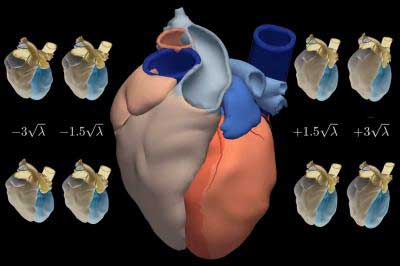A new study published in The Lancet compares outcomes for two drugs used to prevent blood clot formation during emergency heart attack treatment. The study suggests that use of one of the drugs, heparin, could result in improved outcomes (such as a reduced rate of repeat heart attacks), compared to the other drug tested, bivalirudin, which is in widespread use in high-income countries, and is around 400 times more expensive than heparin.
The results of the HEAT-PPCI trial suggest that systematic use of heparin rather than bivalirudin after primary percutaneous coronary intervention (PPCI) – the most commonly used treatment for heart attack, which unblocks the arteries carrying blood to the heart – could save health services substantial sums of money, at the same time as potentially improving patient outcomes.
Patients who undergo PPCI usually receive a combination of antithrombotic drugs to prevent any further blood clots forming during the procedure and after it has been completed. The most commonly used antithrombotic drugs are unfractionated heparin and bivalirudin, and although several previous trials have compared the two drugs, the evidence is unclear as to which drug results in better outcomes.
The trial took place at the Liverpool Heart and Chest Hospital in the UK, where 1829 patients undergoing emergency angiography (an x-ray examination of the heart’s arteries after a suspected heart attack) were recruited to the trial. More than four fifths of these patients then went on to receive PPCI; approximately half received heparin, and half received bivalirudin. Researchers then recorded how many patients in both groups experienced a major adverse cardiac event, such as death or another heart attack, within 28 days after surgery.
The results show that overall rates of major adverse cardiac events were significantly lower in the group who received heparin, although the rates of adverse events were low, as expected, in both groups. Within 28 days after surgery, 46 patients (5•1%) in the bivalirudin group died, compared to 39 (4•3%) of patients in the heparin group; 24 patients (2•7%) in the bivalirudin group had another heart attack in the same period, compared to 7 patients (0•8%) in the heparin group. Although bleeding complications are an acknowledged risk of antithrombotic drugs, there was no significant difference between the groups in the rate of complications.
According to lead author Dr Rod Stables, of the Liverpool Heart and Chest Hospital NHS Foundation Trust, UK, “As far as we are aware, our study is one of the first trials to recruit 100% of eligible patients presenting with the medical condition being examined, which means that it more closely resembles real life practice than many previous trials. The results suggest that the use of heparin has some advantage over bivalirudin in avoiding major adverse events, mainly in terms of reduced recurrent, additional heart attacks in patients recovering from PPCI. This finding might provide an opportunity, rare in modern health care, to provide improved outcomes at much reduced cost.”*
In a linked Comment, Peter Berger and James Blankenship of Geisinger Health System, in Pennsylvania, USA, point out that the although the study has a number of limitations – including an open-label, single-centre design – the study has the advantage of closely resembling actual clinical practice, and including many patients who would have been excluded from earlier trials comparing the two drugs. They write that, “Even if heparin alone had produced statistically similar outcomes to bivalirudin, it would have been a win for heparin. A drug that costs less than a 1/400th of another that has similar efficacy and safety ought to be used preferentially.”
The design of the HEAT-PPCI trial has attracted some criticism within the medical community because of its use of delayed consent: patients provided their consent to participate only after they had been given either heparin or bivalirudin, leading some doctors to raise concerns that the trial design did not conform to medical ethics standards.
However, in a second linked Comment, David Shaw, of the Institute for Biomedical Ethics in Basel, Switzerland, disputes these criticisms, writing that, “In this context, the strategy was preferable to attempting to obtain consent from potentially incompetent patients needing extremely urgent cardiac treatment… In routine clinical care, it would be perfectly normal for a doctor to choose either heparin or bivalirudin without involvement of the patient in the decision.”
“Informed consent for percutaneous coronary intervention is frequently not sought at all; why patients should be asked to consent in advance to formal randomisation of a drug used in the intervention is thus unclear. It would have been unethical to have done the study differently. Attempting to get consent from patients would have increased the risk of harming them by delaying treatment, and could also have affected recruitment.”


